Cooking Across Generations: Intergenerational storytelling through food
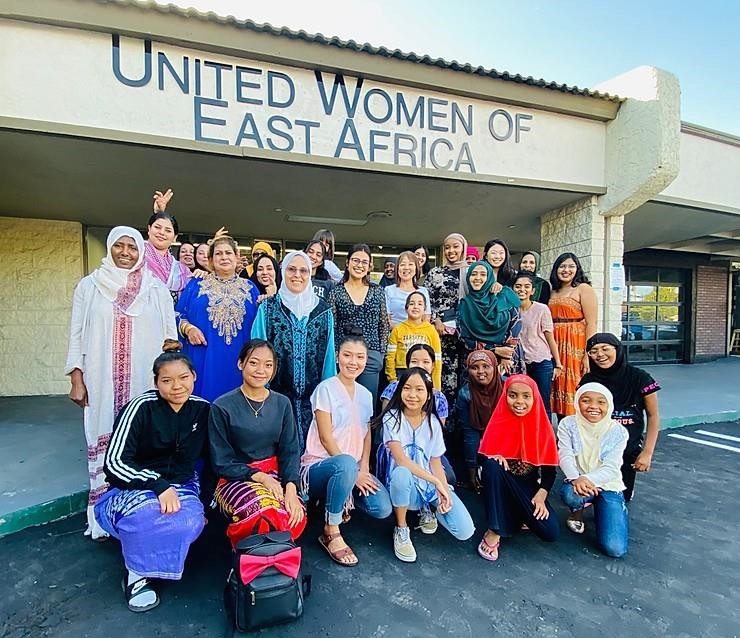
‘Cooking Across Generations’ is an intergenerational gathering of refugee families who have settled in San Diego. The goal of this storytelling project is to share memories and rituals of ancestral foods, keep cultures alive and frame refugees as leaders in their communities who are removing barriers that hinder their access to healthy and culturally appropriate foods. The project is part of the Critical Refugees Studies Collective, an initiative of the University of California system to resource the knowledge production and perspectives of refugees to frame and center their own narratives, scholarship and storytelling. ‘Cooking Across Generations,’ a celebration of refugee communities and their ancestral foodways, is a partnership between the UCSD Center for Community Health, the Karen Organization of San Diego and United Women of East Africa. This gathering was an intergenerational confluence of families, singers, dancers and drummers who enjoyed a large feast, cultural performances and shared stories in City Heights, one of the most diverse neighborhoods in San Diego, which is home to many refugees.
Kay Win was born in Mae La, one of the largest refugee camps for Karen people in Thailand. As a member of the Karen hill tribe, her family fled Burma (Myanmar) like so many others because of ethnic and religious persecution. ”I was eight years old when I arrived in the US,” she says. “At first it was really difficult. I couldn’t speak English, and I didn’t have any friends. I cried a lot, and I was made fun of in school.” Over time, Kay Win and her family connected with the Karen Organization of San Diego, where they met other refugees, which was a welcome relief from the overwhelming alienation they faced. “I felt so comfortable around my own people. We celebrated the Karen New Year with our dances and food. Burmese food is really delicious,” she said. For Kay Win and her family, finding culturally appropriate ancestral foods was key to feel a sense of belonging. “We love fish paste. We eat it every day with rice and chilies. And finding the right flavor and taste of the fish paste is really important for us.”
Amina Sheik Mohamed can empathize. As a Somali woman, the founding director of the Refugee Health Unit at the Center for Community Health, University of California in San Diego, her own lived experience as a refugee illuminates the many intersecting barriers that refugees face to access health and food equity in the US. The Refugee Health Unit outlines an inclusive and culturally competent approach to strengthen the health and well being of displaced communities that are starting anew. “I was surprised by the rate of chronic health diseases here. I realized that communities experience many barriers to stay healthy and eat nutritious foods,” she said.
The Refugee Health Unit under Amina’s leadership has amplified the voices of refugee and immigrant youth who are framing food equity as an issue of justice and well being. The ‘Cooking Across Generations’ project was organized by Amina and Reem Zubaidi, a Palestinian American health policy coordinator at the Refugee Health Unit, in order to bring together communities from Africa, the Middle East, and Southeast Asia. “Right now we have many intergenerational refugee and immigrant communities in San Diego. It’s important to pass on that knowledge of food and culture and come together to celebrate our diversity and stories of ancestral foods,” Amina said.
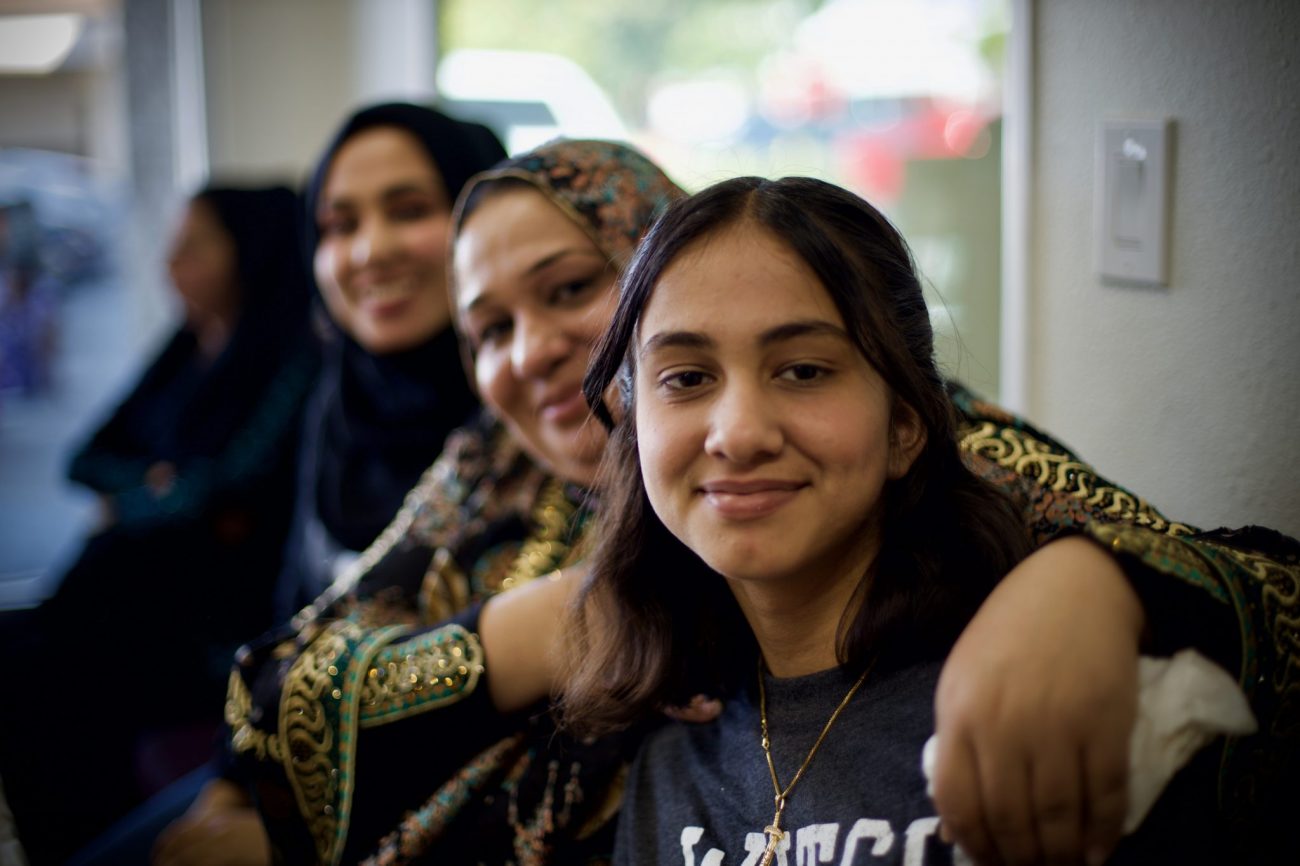
Suadah, an Iraqi refugee and a mother of three, and her friends brought kabsa, a beloved rich dish with chicken, spices, nuts and saffron and kubba, a dish made with bulgur, spices, onions and ground meat. “My son loves kabsa! He wants me to make it at least once a month,” she said. Other ancestral foods at the gathering included Morroccan lamb tagine made with spices and prunes, piping hot Somali-style sambusas and heaps of injera, a flatbread made from teff, that was served with veggies and shiro (chickpea stew), a staple in Ethiopia and Eritrea.
“This makes me feel like I am home,” said Hodo Haji Adam, a 17-year-old Somali American. “When I am here I feel that people understand me. We are coming together and eating our foods. It makes me feel that we do have a voice in America.”
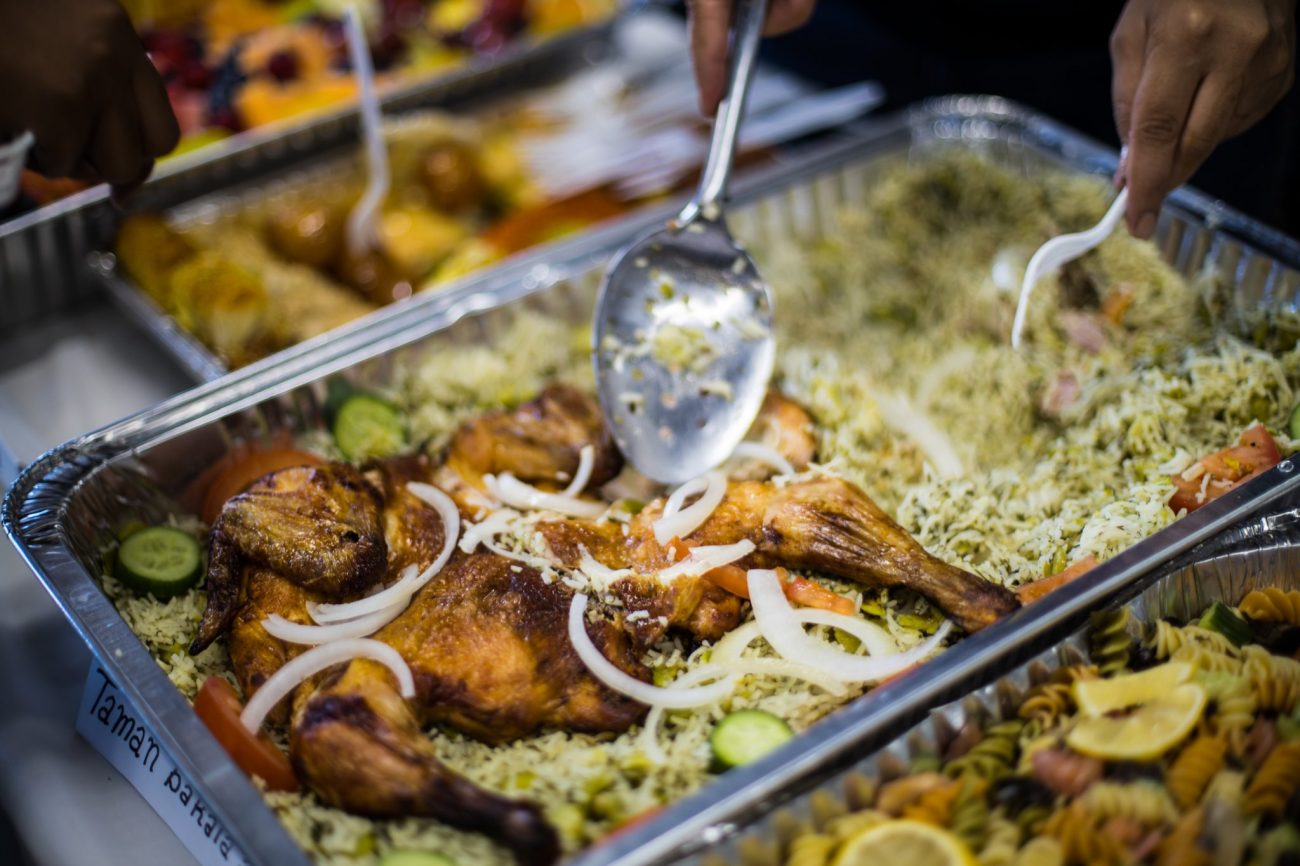
“We keep our Arabic culture alive through our food,” said Suadah. ”Things are really expensive here and fast food is unhealthy. I teach my children to cook and to never forget their culture,”she said. Her extended family and friends brought many dishes from Iraq, including kabsa, a rice dish with meat and spices that’s renowned in the Arab world.
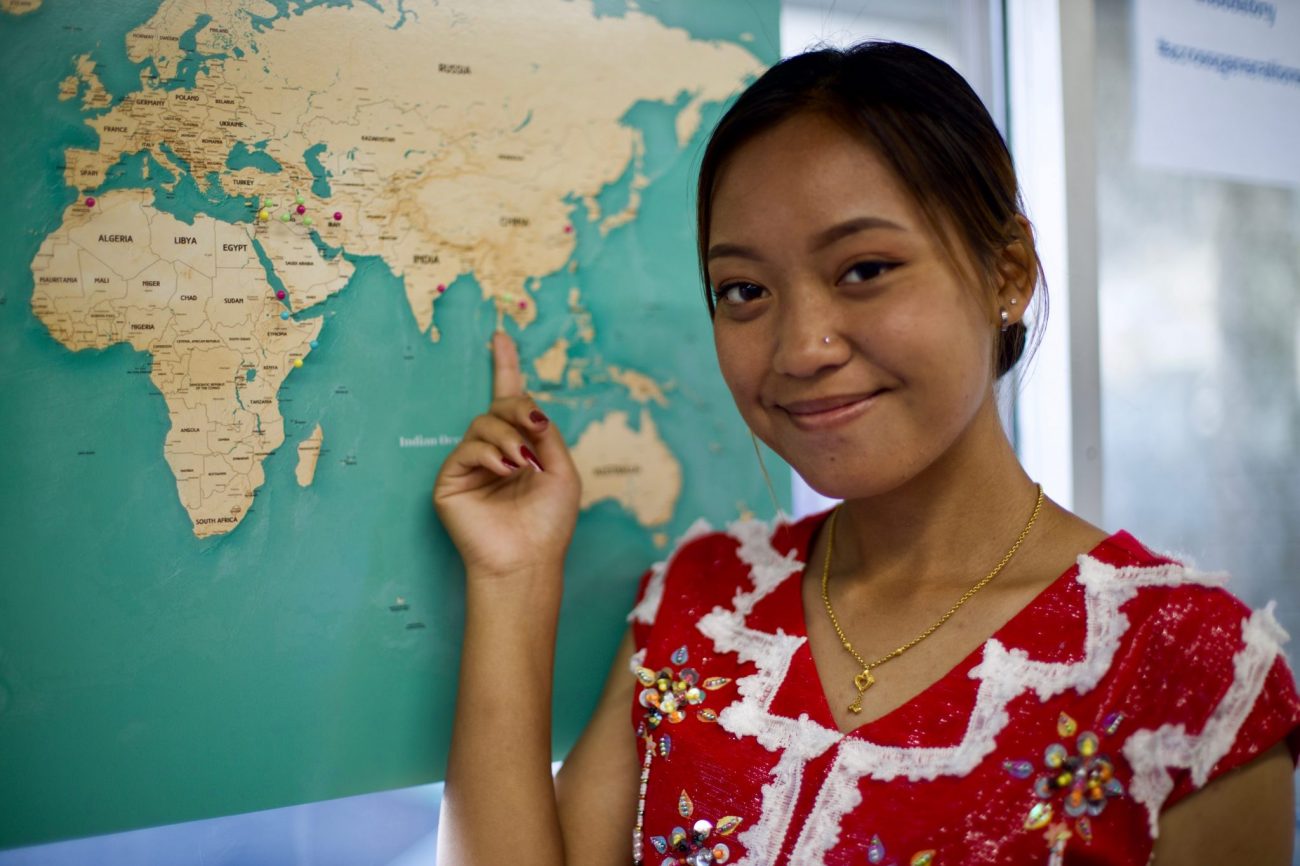
“I want the world to understand our struggles and know who Karen people are. I hope someday we get our country back,” said Kay Win, a Burmese refugee living in San Diego. The Karen community brought traditional dishes like, kaw naw si hkar, a rice noodle dish with herbs for the gathering.
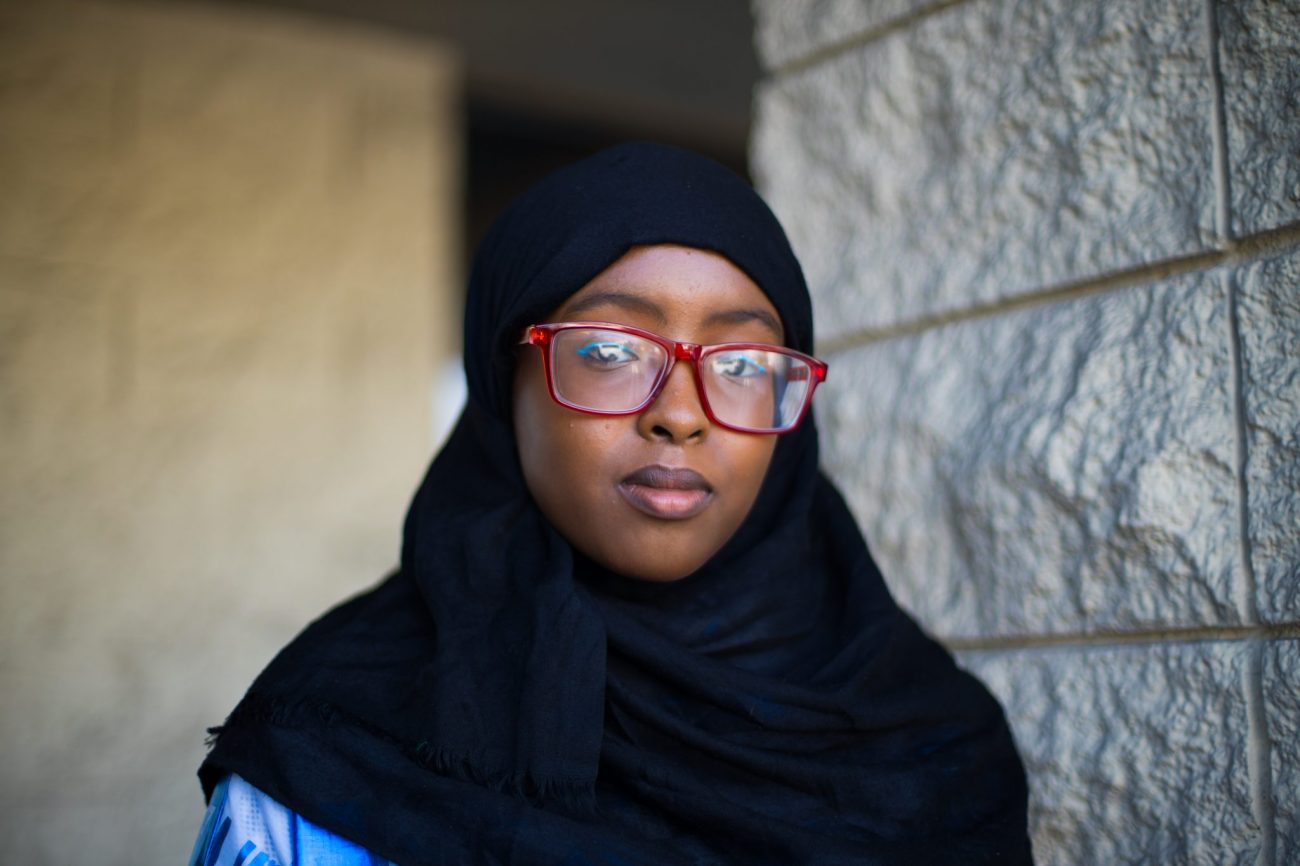
“When I was a kid I used to go to a school where there were literally one or two Somali people. I was Muslim. I was Black. I was an immigrant with all these things stacked against me. I tended to be excluded as a child. We come to City Heights all the time. It’s important to stay connected with our community. Here people look like me. We eat the same food,” said Hodo Haji Adam.
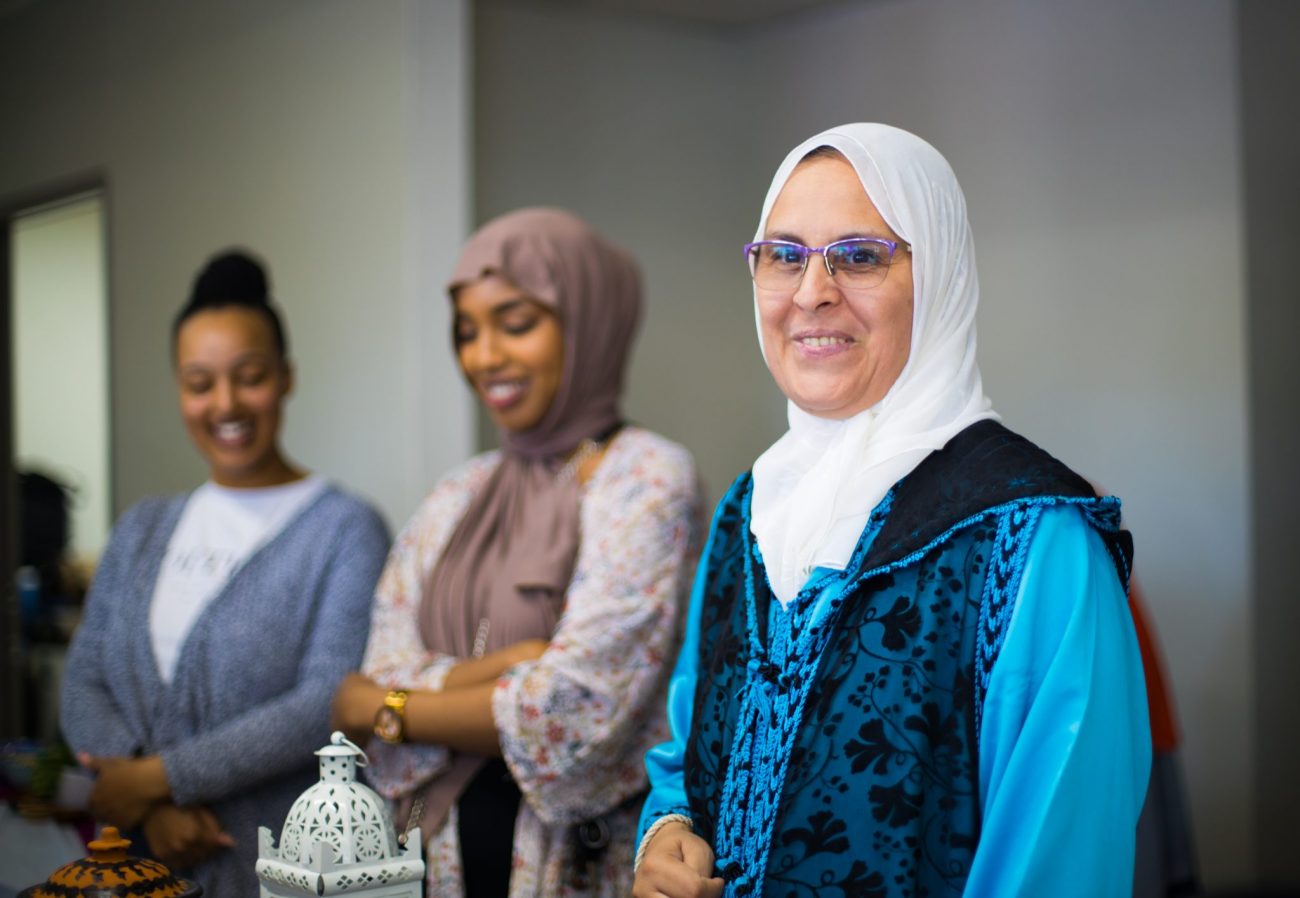
Nadia Atef shared stories about the treasured ras el hanout, a blend of some “37 spices” in Morocco. “Each family’s dish may taste different because of the proportions of the spices. Whenever someone goes to Morocco, I tell them to bring me ras el hanout. It’s a big gift for me.”
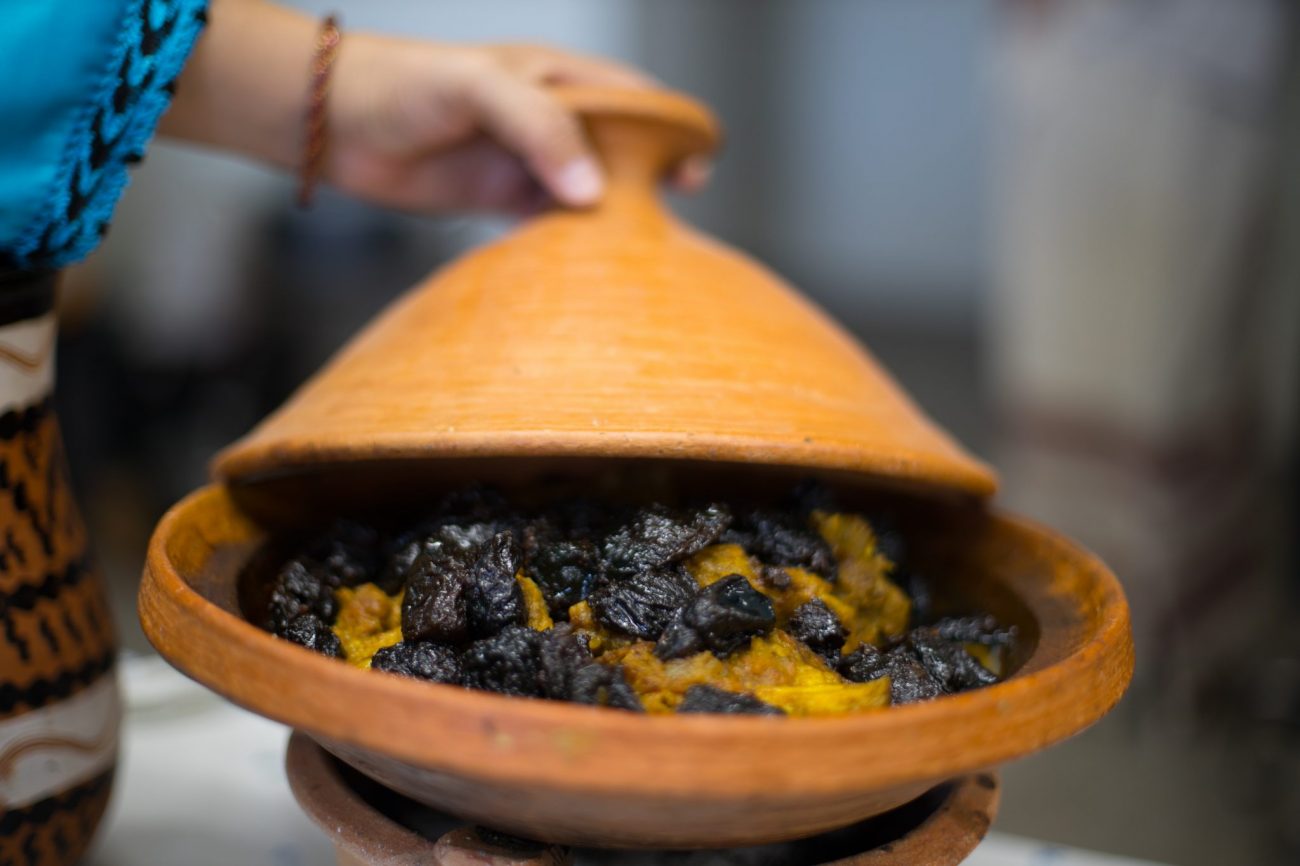
Nadia cooked a Moroccan lamb tagine with dried prunes, almonds and spices and shared stories of her food culture. She also brought white napkins embroidered with delicate turquoise thread and a beautiful tea set that had been passed down over generations.
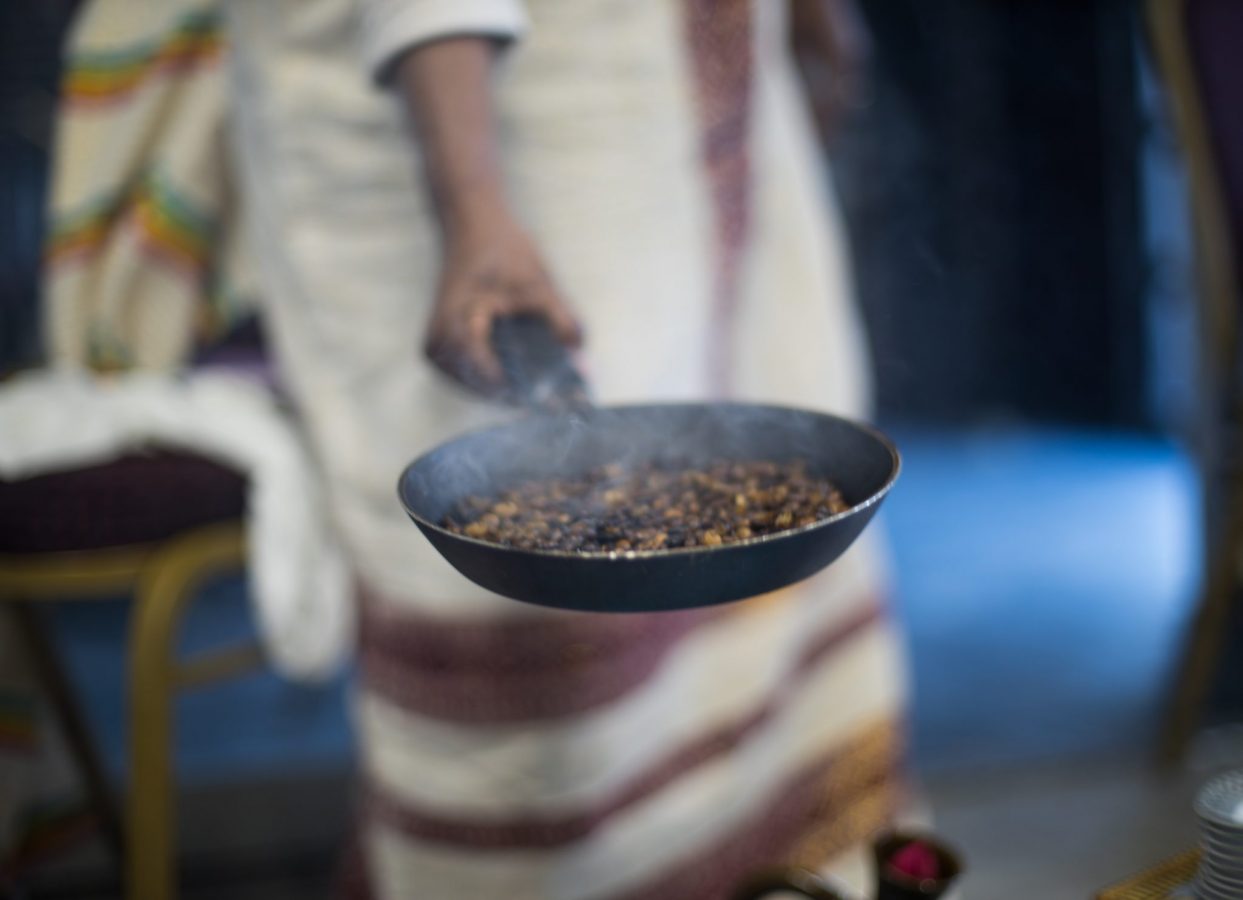
A traditional Ethiopian coffee ceremony was a huge hit with the crowd. Women roasted and ground the beans and served the coffee with coconut cake. Smell of the roasted beans and incense wafted through the room as people gathered to watch the process.
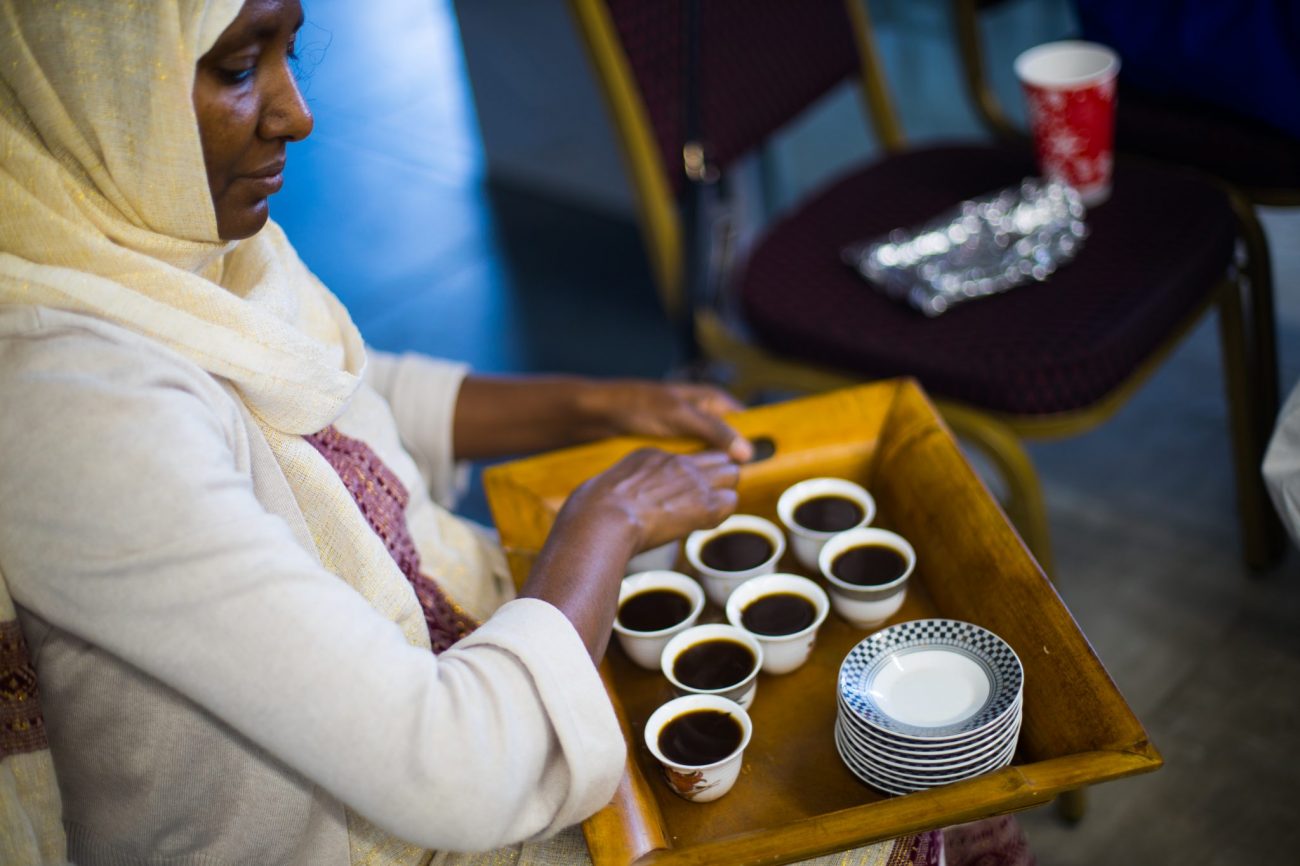
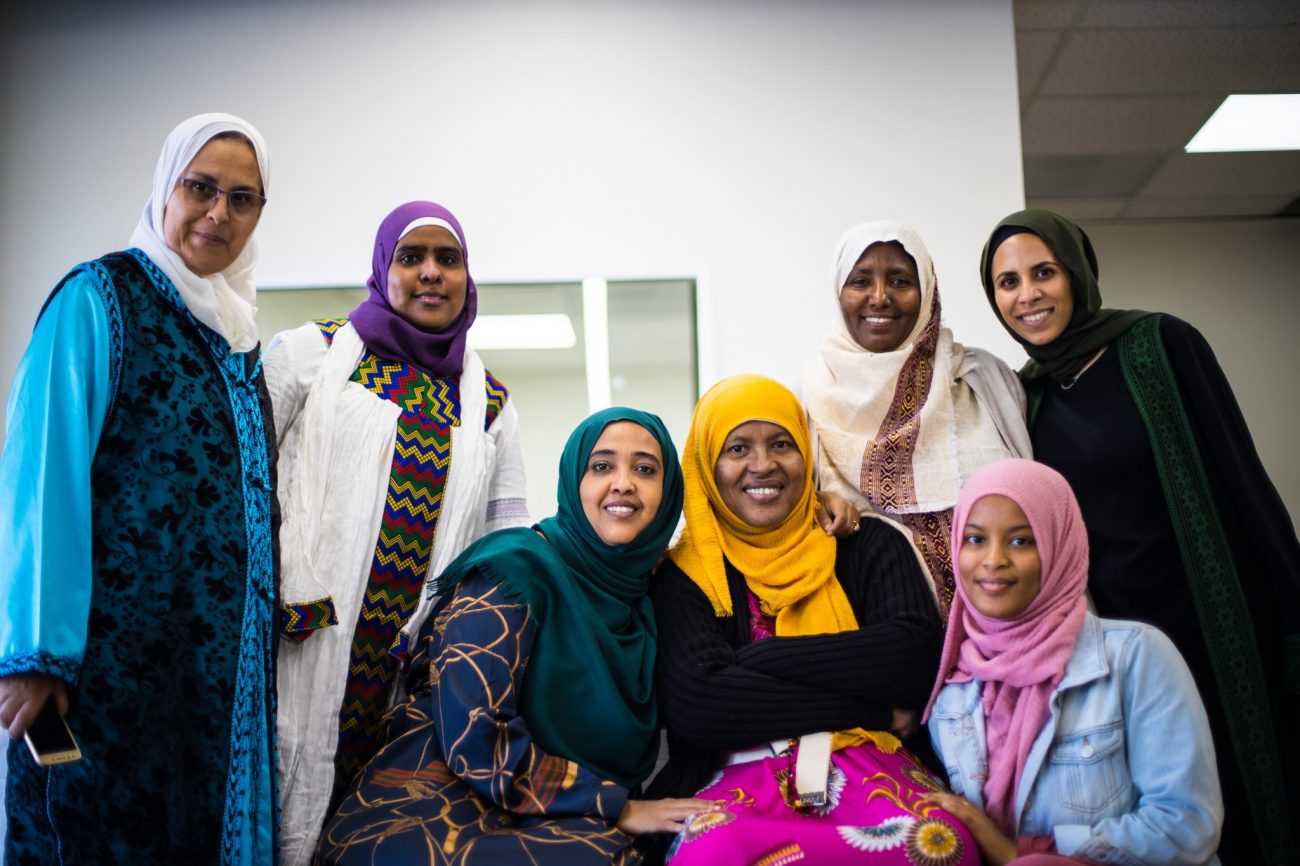
‘Cooking Across Generations’ was hosted by the United Women of East Africa, a grassroots organization that offers culturally and linguistically appropriate health, education and advocacy services for the East African diaspora in San Diego. The group says their organization has “grown out of community, not brought in by outside organization.”
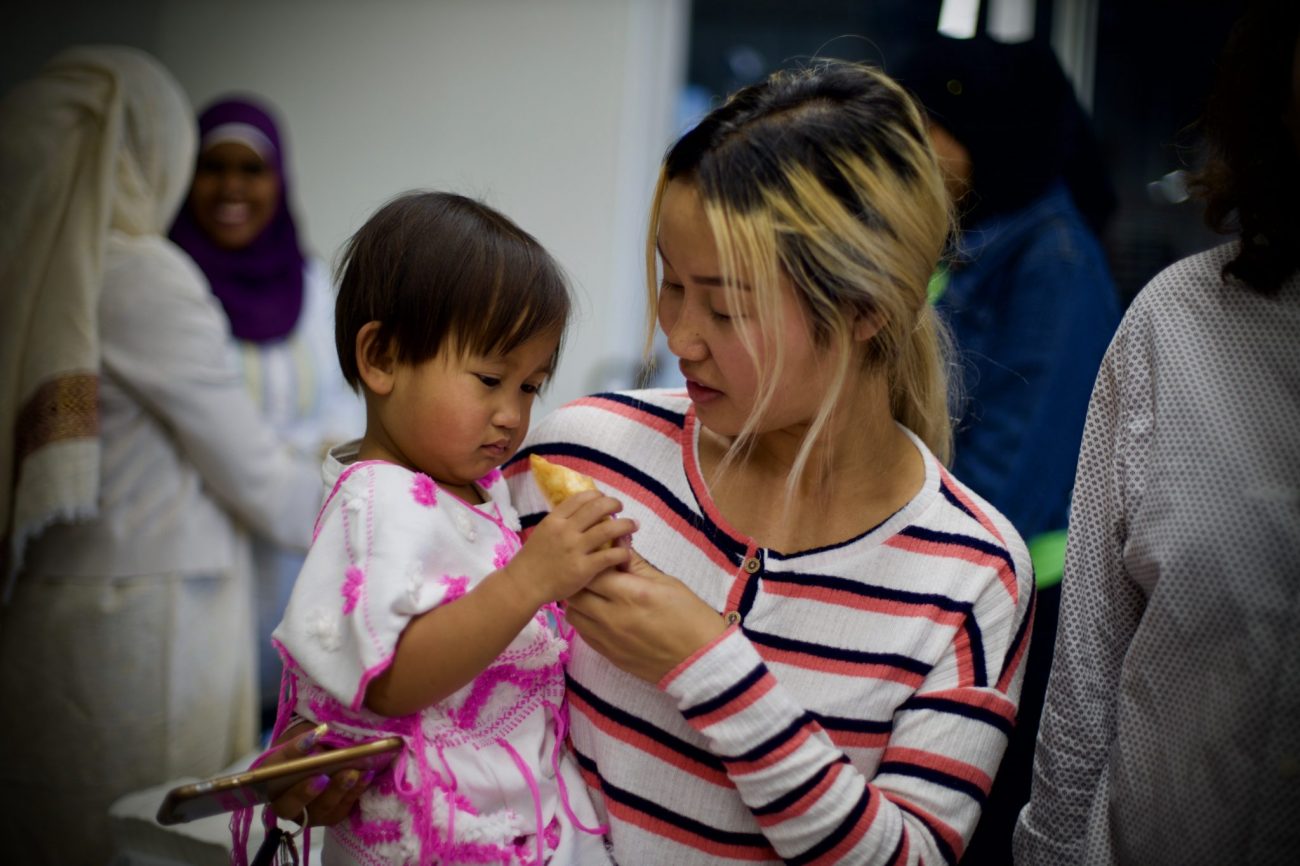
Karen Organization of San Diego was founded to support ethnic Burmese minorities to navigate services for refugees, like education, healthcare, food stamps and employment. “When we first arrived here, we were scared. It was hard to find language translators. Now we feel it’s okay to be refugees. We can celebrate our identity and share our culture with others,” said Paw Lay (not in this picture).
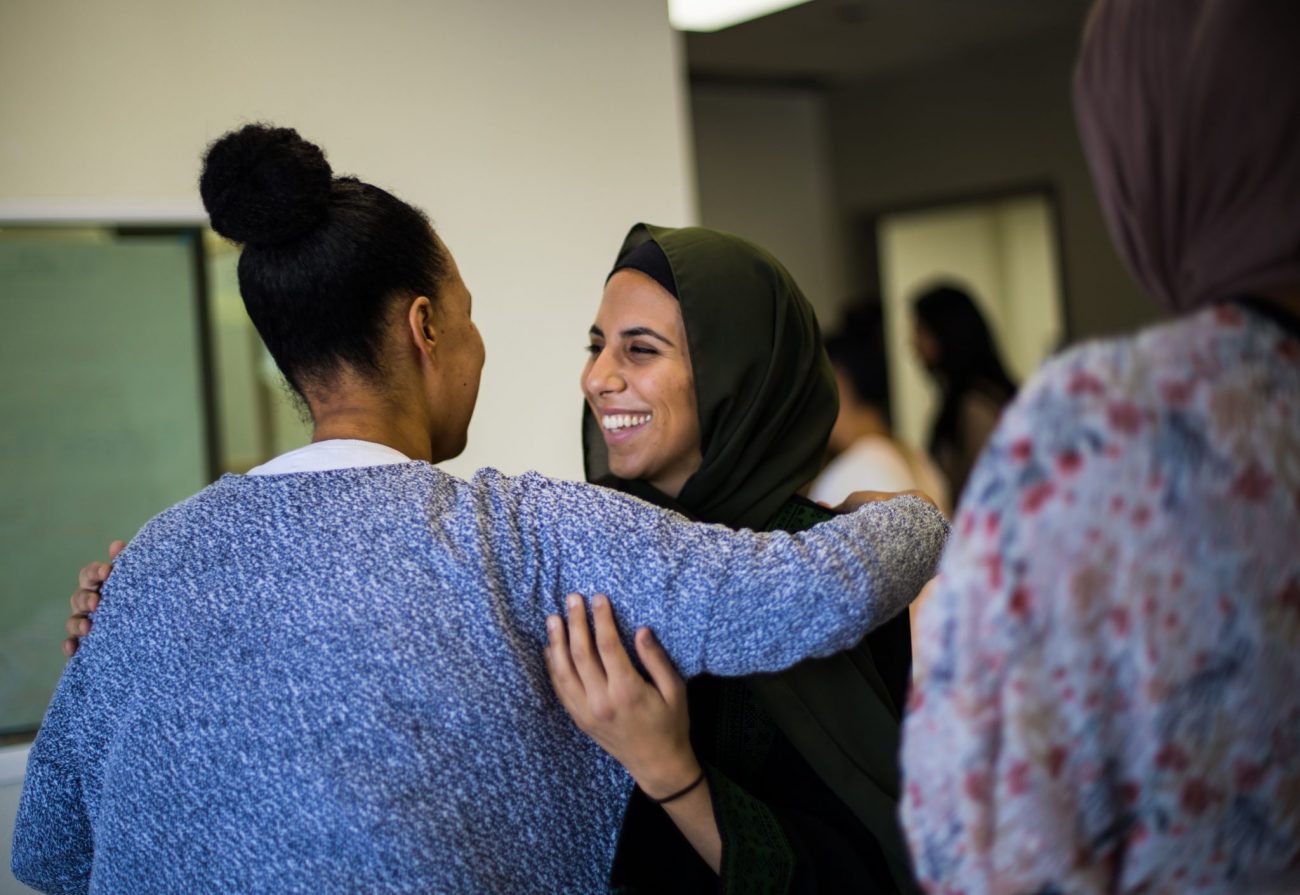
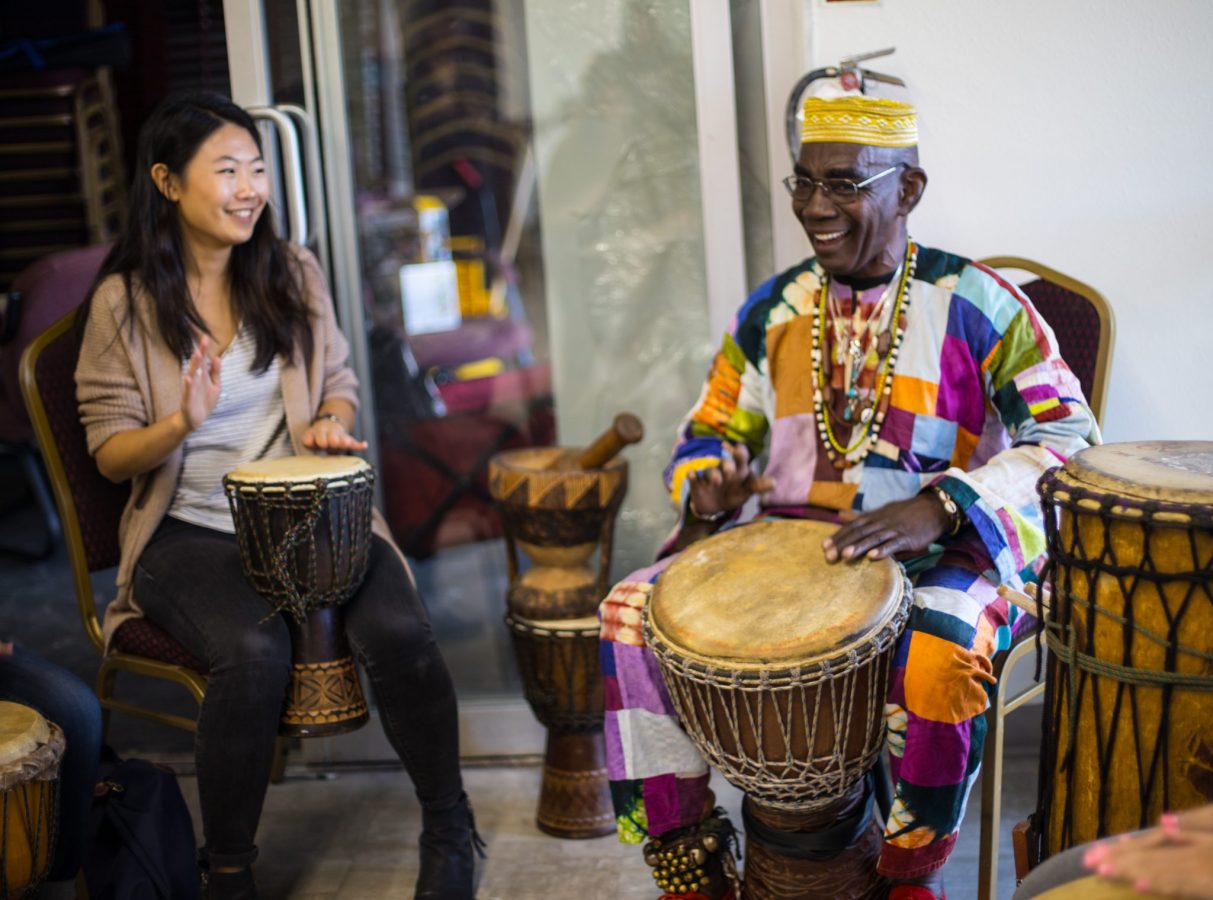
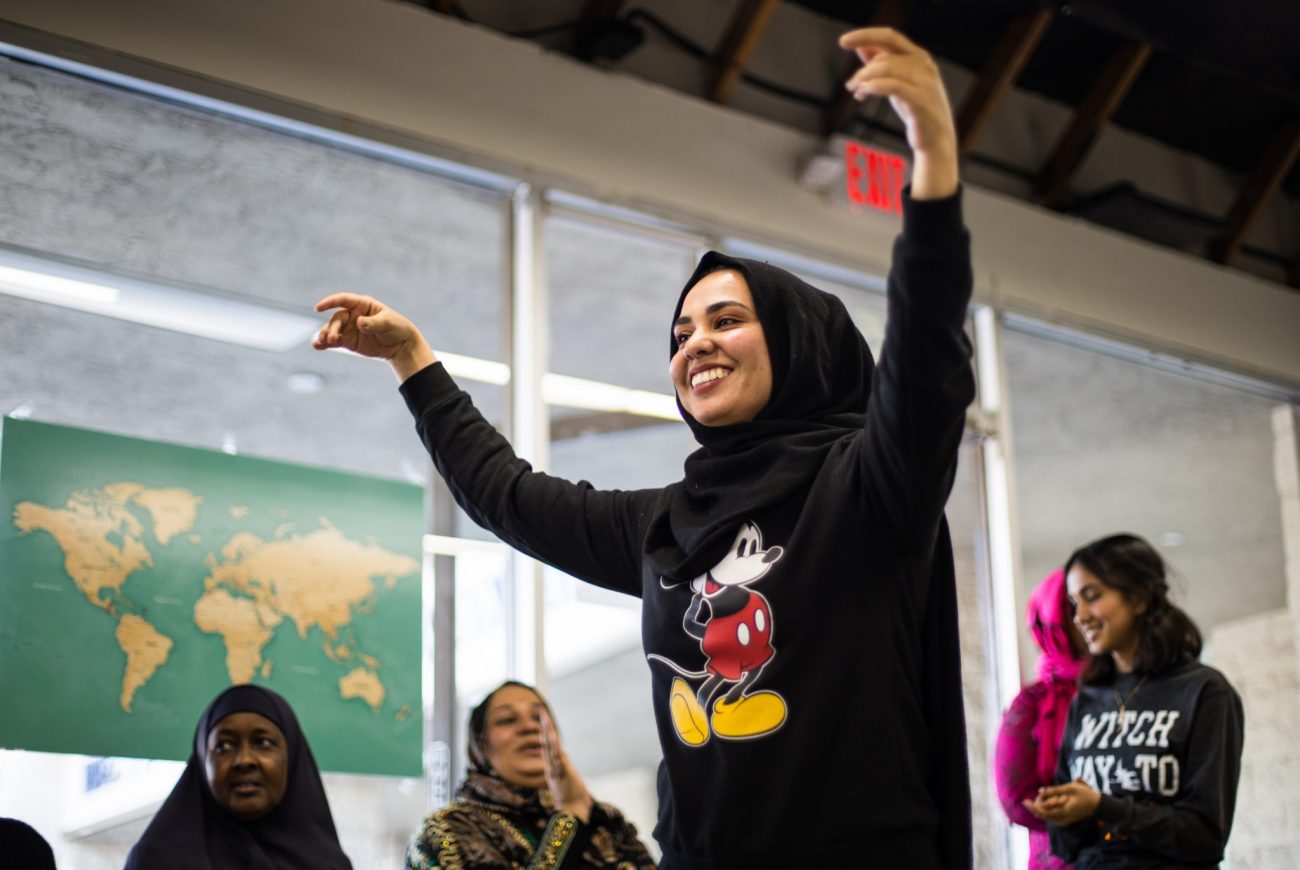
“Recognize that pleasure is a measure of freedom,” writes Adrienne Maree Brown, a Black feminist and writer. ‘Cooking Across Generations’ culminated with a spoken word performance and traditional music and dances from Iraq and Burma.
